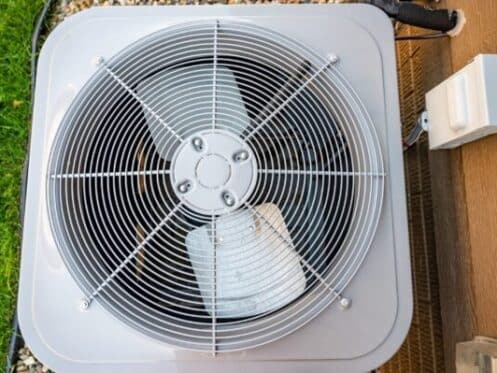The air conditioner in your Charlotte, NC should provide a steady stream of cold air during operation. If the air that’s blowing out of your vents is warm or hot, you have a problem. The good news is that it may be a minor, maintenance-related issue. Following are several common causes of an air conditioner that won’t cool even though it reliably turns on.
Dirty Air Filters and Other Airflow Obstructions
To perform optimally, air conditioners require excellent airflow. Even something as simple as a dirty air filter or a closed HVAC air vent can affect an air conditioner’s ability to produce and distribute cold air.
If your central HVAC system hasn’t been professionally zoned, you may have residents who’ve decided to use their air vents to customize the temperatures in their immediate areas. Although limited, short-term vent closures aren’t guaranteed to be problematic, having two or more vents regularly sealed shut will cause pressure to build in your ducting. This pressure places air conditioners under stress by forcing them to work harder. As air conditioners overheat, the air they distribute grows increasingly warmer.
Airflow obstructions that aren’t quickly resolved can cause air conditioners to shut down. These appliances only allow themselves to become so hot before they turn themselves off. If you don’t find a few closed vents throughout your home, shut your air conditioner down until you identify the problem and have it resolved.
Among the top causes of overheating in air conditioners are dirty air filters. These components should be inspected each month. In some households, they must be changed monthly as well. This may be the case if you have indoor pets, live near a busy freeway, have active construction in your area, or have other major indoor air quality (IAQ) concerns. At the very least, standard HVAC air filters should be swapped out every 60 to 90 days.
If you check your air conditioner’s air filter and find it covered in a mat of lint-like debris, this is likely the cause of your problem. After changing, be sure to wipe down any dirty air vents or registers throughout the building to ensure that loosened filter debris isn’t blocking airflow.
Your Thermostat Has the Wrong Setting
During the cooling season, people often associate the word “fan” with relief. This could be why many homeowners make the all-too-common mistake of setting their thermostats to “FAN” rather than “ON” when what they really want is cooling. The “FAN” setting on your thermostat only causes your air conditioner to circulate the air within your home without altering its temperature. To initiate an actual cooling cycle, you’ll have to move this setting to “ON.”
You Skipped Your Annual AC Maintenance
If you didn’t have your air conditioner professionally serviced before the start of the cooling season, there are a host of potential problems that could be causing it to overheat. During the annual tune-up service, our HVAC technicians carefully clean AC condenser coils and evaporator coils. Although HVAC air filters provide limited IAQ benefits for building residents, they primarily exist to keep build-ups of dirt and other contaminants off these components.
Dirty coils have a hard time managing the heat transfer process. If your air conditioner’s evaporator coil is covered in grime, the chilled refrigerant it contains won’t be able to fully absorb the heat from your indoor air. As a result, the air that gets distributed through your vents won’t be much cooler than the temperature of the room. Dirty condenser coils have a hard time releasing collected heat. This means that refrigerant won’t be fully cooled before reaching the evaporator coil. In both cases, the best solution is to schedule AC preventative maintenance right away.
There Are Problems at the Outside Condenser
Your air conditioner’s outside condenser unit houses its condenser coil and its compressor. Although it’s largely out of sight and out of mind, the condenser unit is incredibly important. It should always be on a stable, level platform, and it should always have at least two feet of clearance on every side. If your condenser’s underlying pad has shifted or if there’s an overgrowth of weeds, shrubs, or other greenery blocking its airflow, correct these issues before turning your air conditioner back on. Given that AC condensing units are heavy and highly pressurized, it’s best to have any necessary slab adjustments made by licensed professionals.
Check for Refrigerant Leaks
Leaking refrigerant can certainly have an impact on your air conditioner’s ability to cool. Refrigerant is the lifeblood of the cooling cycle and the heat transfer process. Not having enough refrigerant can both diminish your indoor comfort and put your AC compressor at serious risk of failure. Whenever refrigerant leaks air suspected, air conditioners should be turned off and service should be scheduled right away.
With a staff that possesses over 75 years of industry experience, we proudly serve Charlotte, North Carolina and the surrounding communities. We offer air conditioner installation, maintenance, and repair services. We also provide heating, electrical, and geothermal HVAC services. To find out about our preventative maintenance plans or to schedule service, contact Putnam Mechanical today.
